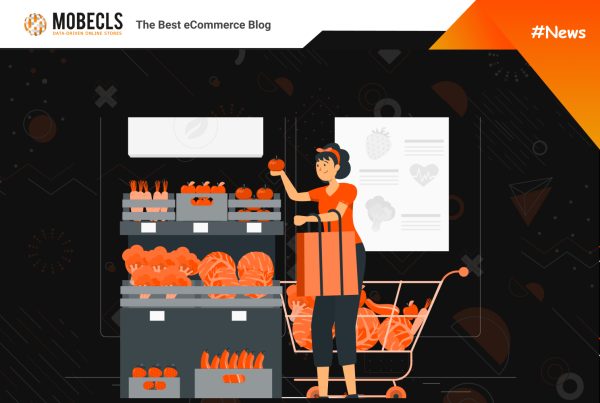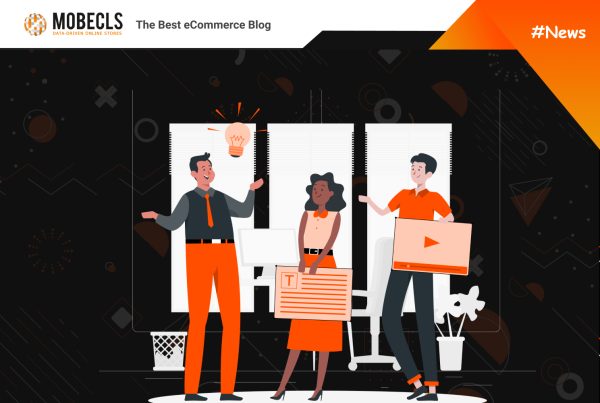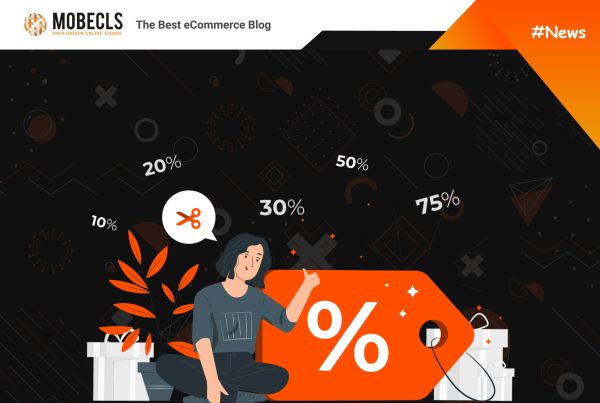What does the letter “e” in the word eCommerce stand for? Usually, it means electronic or internet. However, it got one more meaning within the last years. Any ideas? I’d say it transmits eco or ethical. People have become more concerned about the environment, and they expect companies to be more socially responsible for our planet. We should switch to green eCommerce to meet these demands.
Environmental problems started to change buyer behavior significantly. Millennials consider eco-friendliness as one of the main purchase decision factor along with price, UX, shipment, etc. Perhaps, eco trends may rule the whole industry for decades.
How to go green and boost sales? Let’s find out.
Green Packaging
One of the most harmful environmental impacts of online stores is the packaging. One package may consist of two boxes, bubble wraps, etc. However, it’s possible to reduce their quantity. Sustainable packaging means that you can reduce, reuse, and recycle it.
Green packaging is one of the steps on the way to green eCommerce. It may include:
- Reduce or Remove Packaging. It’s great if you can use one box instead of several. On the other hand, removing packaging is almost impossible for some fragile goods. You can also cut down the packaging wastes by In-Store Pickup. One more benefit of green packaging is shipping cost reduction.
- Use Mono-materials. Composite packaging is the biggest recycling obstacle. It requires several materials that are difficult to sort (composite laminate may include plastic, aluminum, cellulose, glass, and other materials simultaneously). Mono-materials eliminate this problem and provide a circular economy. Let’s look at the scheme below to find out how it works.
- Use Paper or Bioplastics Instead of Plastic. There are no doubts that these materials are better for the environment. Nevertheless, they also have some disadvantages. The main one is their production and supply. We need to grow more sugar cane and other bio feedstocks to produce enough bioplastic and more wood for paper. More sown areas require more space; to create more space, we need to cut down more forests. It creates another ecological problem — deforestation. It turns out that it’s a double-edged sword. All in all, paper and bioplastics are viable alternatives.
- Design for Reuse. The first option is a returnable packaging. For example, customers can send back packaging by post, at a store, or it can be picked up by a service. In further, an online store can use it a few times more. The second option is to design it for continued use. It can be reusable handled containers, wraps & straps, bulk containers, etc. Let’s take a look at some examples of smart packaging:
Sustainable Products
It’s important to know market preferences to meet the customers’ needs. Nevertheless, merchants should realize that these preferences began to go hand in hand with social responsibility.
People are eager to know whether the product is zero waste or manufactured from eco-materials. Be sure that you have implemented a live chat to your website. It’s the best way to answer customers’ questions immediately and win a new client.
Eco advocates are usually interested in:
- Biodegradability of your products
- Post-consumer wastes
- Product’s life-cycle (the longer the better for the environment)
- Organic nature of products
Let’s move to Indonesia to find out some solid green eCommerce ideas. Why Indonesia? This country is the second World’s plastic offender. It contributes almost 2 billion plastic to the ocean. That’s why there’s a great boom of sustainable eCommerce.
Zerowaste.id is the first Indonesian green website that not only sells eco-friendly products but also educates people, promoting zero waste lifestyle. ZWL is the way of life that minimizes the production of waste by each individual. Zerowaste offers people to buy high-quality goods made of recycled garbage and sustainable products like water filters, menstrual pads, bags, bubble tea bamboo straws, etc.
Tokopedia.com/navakara is an online store selling limited eco-friendly products such as bamboo toothbrushes, forks & spoons.
Selling sustainable products is not the only way to be an eco-friendly online store. Bukalapak is a website that doesn’t sell any eco-friendly or sustainable products. Nevertheless, it contributes a lot to the environment. What do you think it offers customers? Pre-loved clothes! All the second-hand items are carefully selected, washed, and branded.
If you’re interested in USA statistics, the sales of eco-friendly products reached $128.5 billion in 2018. By 2020 these figures are expected to grow on $ 14-22 billion.
Social Responsibility
The social responsibility of brands has become one of the most important factors in decision-making. Almost 90 % of shoppers are more likely to trust a brand if it’s socially active.
The clothing brand Ivory Ella turned into a unicorn in 4 years, donating to elephant protection. 10 % of the brand’s net profit goes to “Save the Elephants” charity. The brand’s concept advocates eco-friendly products and elephant protection. These mighty, but at the same time, fragile animals are printed on every item, used in its name and on the logo.
People concern a lot about animal bullying and extermination. Animal abuse is always causing public outcry. Concerned customers have already helped to raise more than $ 1 million for elephant protection.
Don’t be upset if you can’t afford constant donations to environmental organizations. You can run a promotional eco-campaign where you donate a certain amount of profit for a while. One more option is to start a one-day-sale on Earth Day (April 22). It may help you to understand whether your target audience concerns about ecological problems.
Wrapping Out
Let’s be realistic. It’s impossible to switch to green eCommerce in one night. Nevertheless, we should understand that online stores impact our environment and we can reduce them. It’ll be great if you look at your business and think about which ideas you can implement at least one. Let’s make Earth green again!




